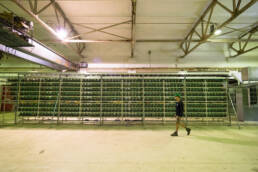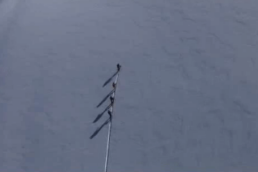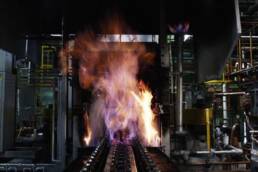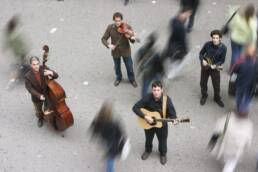In the 1960s, the Pacific Coastal outpost of Ocean Falls laid claim to a pulp-and-paper boom of puzzling success. All but deserted now, the town is home to ghosts of the past and phantoms of the future: a lair of computer hums, motherboards dig for data, and the quest for an uncertain new fortune has begun. Story and photographs by Louis Bockner.
Ocean Falls is remote. Almost exactly in the middle of British Columbia’s coastline, the community is a testament to humanity’s willingness to populate places it shouldn’t, all in the name of industry. Bella Coola, the nearest road-accessible town, is a four-hour ferry ride west. Vancouver is 500 kilometres to the south. The only ways in and out are by sea or air, and food is delivered twice a week by barge. Rainfall records put Ocean Falls among the wettest places in North America. Thirty-two residents live here year-round, and aside from the low hum of a century-old hydroelectric dam, a brooding, misty silence pervades. Yet in this town, where the ghosts of gnarled loggers and millworkers creak the floorboards of derelict buildings, a new business has been born. The fortunes of miners are now made in the cloud, and the energy that used to be harnessed to run the once-bustling city is now consumed by hundreds of tiny computers all digging for bitcoin, a digital currency worth more than gold.
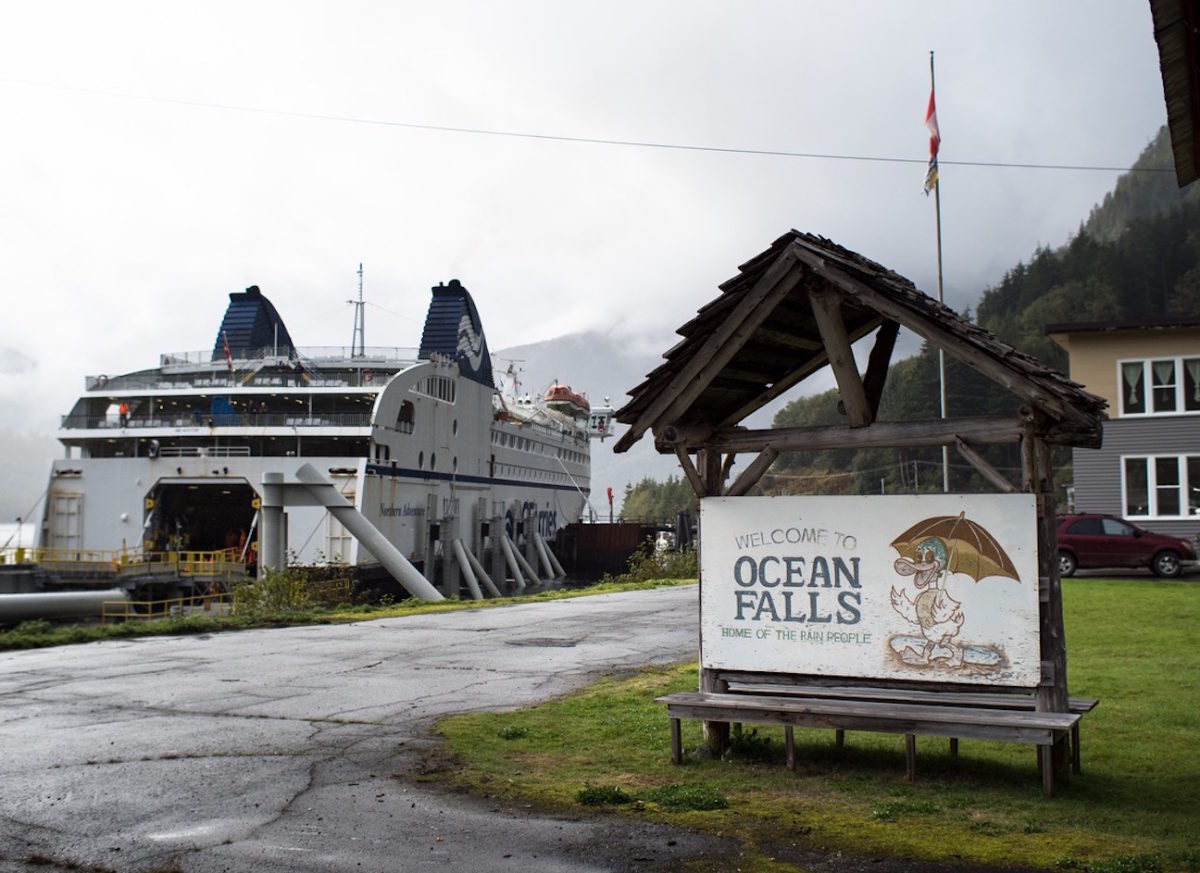
The Heiltsuk peoples occupied this region seasonally for thousands of years, congregating to fish for salmon at the base of the waterfall that once descended from Link Lake directly into the Pacific Ocean. At the dawn of the twentieth century, the hydroelectric potential of that waterfall caught the eye of American and British industrialists. Within a decade, the seasonal Heiltsuk village was relocated to a more “convenient” area, and a modest hydroelectric dam was built to power a small pulp and paper mill. The company town of Ocean Falls was born. Modesty, however, has never been a trait of capitalism. By 1960, Ocean Falls boasted Canada’s first indoor swimming pool, Canada’s second-largest hotel, and the busiest liquor store per capita in British Columbia. It was also home to nearly 5,000 residents, most of whom were gainfully employed by the paper conglomerate Crown Zellerbach, which had bought the town and its mill in 1954. “Here thousands of people live well, very well indeed,” wrote journalist Austin F. Cross. “Except truly they are all dressed up with no place to go.”
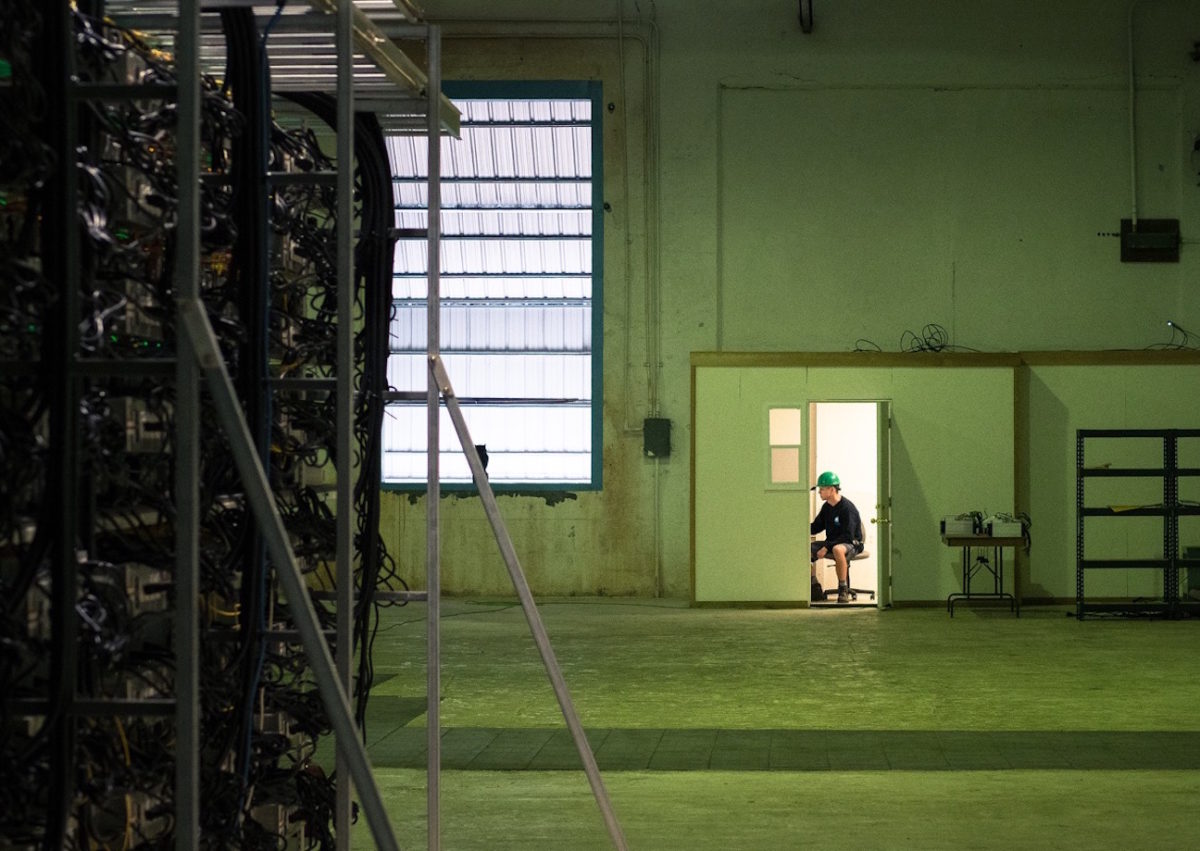
That was the boom. The bust came two decades later, when the mill officially shut down and the British Columbia government, which now owned the townsite, began demolishing it piece by piece. Most residents had left, more followed, and soon enough less than a hundred remained, the majority choosing to live in the nearby cottage community of Martin Valley.
The buildings that survived were quickly reclaimed by the damp, suffocating aliveness of coastal nature. Red alder sprouted from crumbled foundations and blackberry bushes broke the surface of now-nameless streets, but still the dam hummed, producing excess power untied to the grid and unharnessed by human imagination. Then the dam’s operations manager, Brent Case, started getting phone calls from mysterious miners. Only these people didn’t have calloused hands or grime-streaked faces, and they weren’t searching for coal, nickel, or silver. They were after something less tangible and more profitable.
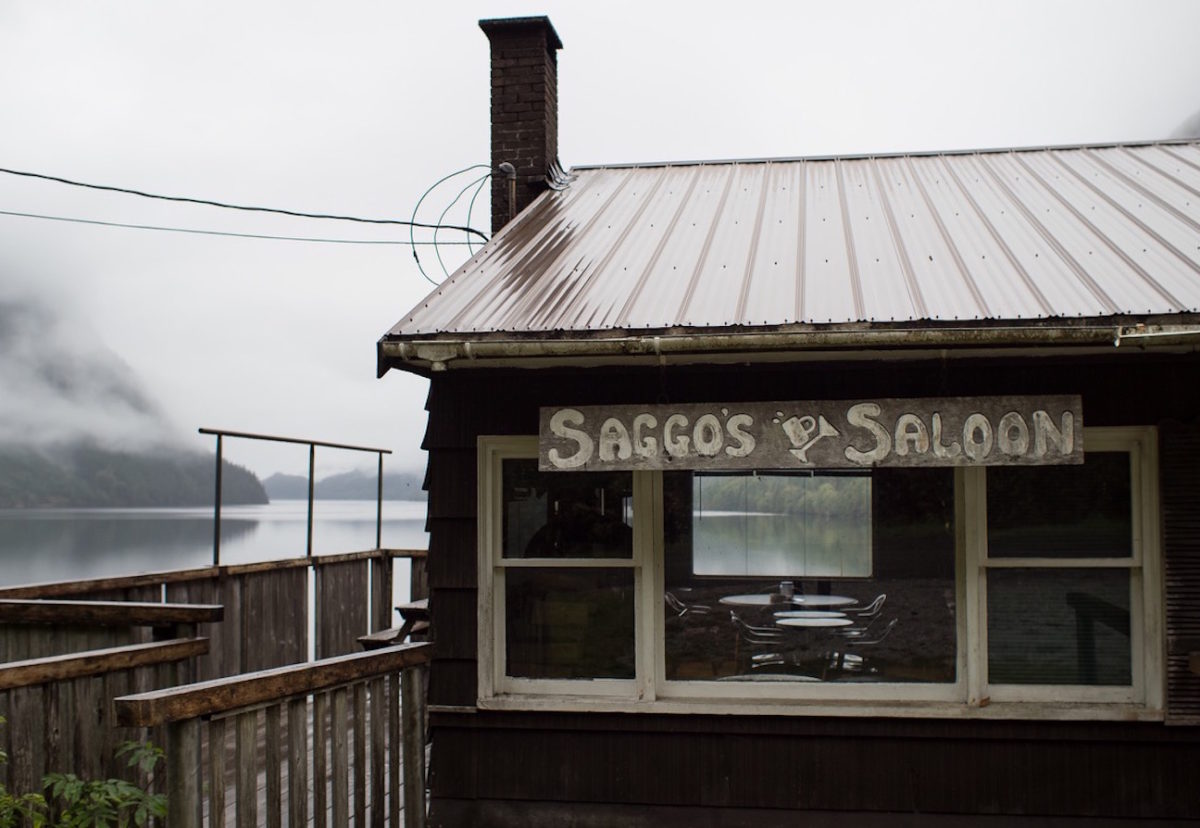
Bitcoin is the world’s most famous cryptocurrency, a digital currency that utilizes encryption to secure transactions. Founded in 2009 by a mysterious man named Satoshi Nakamoto, bitcoin offers a currency based on the blockchain: a decentralized ledger technology that replaces the intermediaries (or banks) that usually complete and verify transactions between people. Although its promise to disrupt the global economy is yet to happen, especially in a commercial sense, bitcoin has become a popular form of investment for many and spawned dozens of other cryptocurrencies, like litecoin, dogecoin, and ethereum. While simply buying bitcoin with traditional money is the easiest way to invest, so-called “mining” offers those with the financial and electrical resources a more profitable way of padding their e-wallets.
 The process for mining bitcoin is as simple as it is confusing. Specialty computers verify bitcoin transactions made on the decentralized global network and are rewarded in bitcoin. The downside is that all those computers require plenty of electricity, meaning a mine’s profit is directly correlated to how much cheap power is available. Because of this, cryptocurrency mining has been criticized as a fruitless activity with negative environmental ramifications. Enter Ocean Falls, a place with an excess of relatively clean off-grid energy.
The process for mining bitcoin is as simple as it is confusing. Specialty computers verify bitcoin transactions made on the decentralized global network and are rewarded in bitcoin. The downside is that all those computers require plenty of electricity, meaning a mine’s profit is directly correlated to how much cheap power is available. Because of this, cryptocurrency mining has been criticized as a fruitless activity with negative environmental ramifications. Enter Ocean Falls, a place with an excess of relatively clean off-grid energy.
When Case’s phone began ringing, he was mostly unimpressed. The prospectors were either greedy or incompetent or both, and Case, a down-to-earth, hands-on kind of guy, shies away from those sorts of people. Then, at the beginning of 2016, he got a call from Kevin Day, a Vancouver-based entrepreneur working with a team of investors who had a different approach. Yes they wanted to mine, but they also wanted a space to research and pursue development possibilities for the heat produced by the computer’s cooling systems and find other applications for blockchain (see sidebar). “Their idea was to do it slowly while the rest of the people wanted the power right now,” says Case. “That was the difference. They’re here for the long run, and for us it’s a net win for Ocean Falls because this is power we can’t sell, and it’s exciting for us because they’re coming up with new technologies. We see the potential there.”
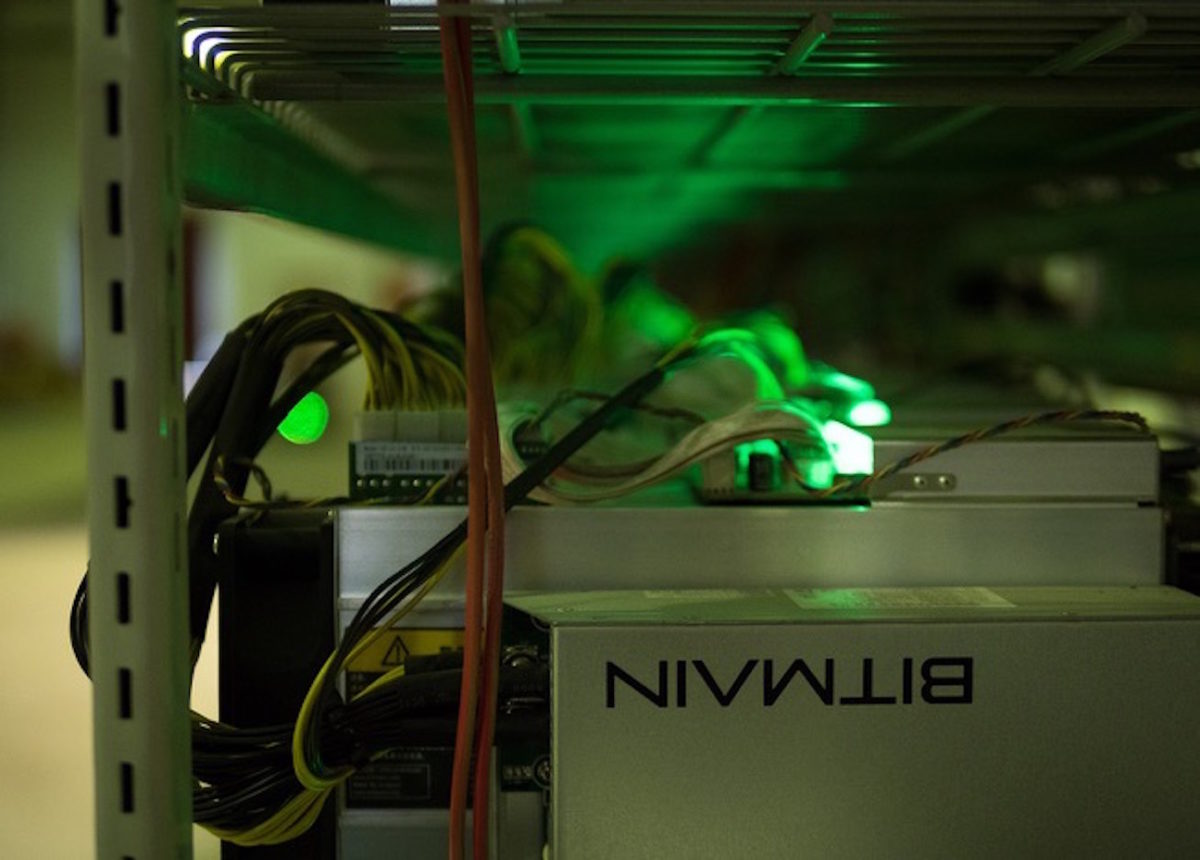
When Case and Day began talking, a single bitcoin was worth under $600. By December 2017, it had peaked at over $25,000, and by July 2018, when Day switched on the servers of Ocean Falls Blockchain (OFB), it had plummeted to under $10,000. While the company is currently far behind schedule when it comes to bitcoin-mining goals, Day remains optimistic — not necessarily in bitcoin itself but in blockchain. As a former software developer in the insurance industry, he sees the potential for the decentralized technology to dramatically alter the landscape of industries like insurance and banking. “I believe in blockchain technology,” he says, walking through the expansive dam operations building, now owned by a company called Boralex, where OFB is headquartered. “The ability to transfer digital assets between people or companies without intermediaries, that technology is here to stay.”
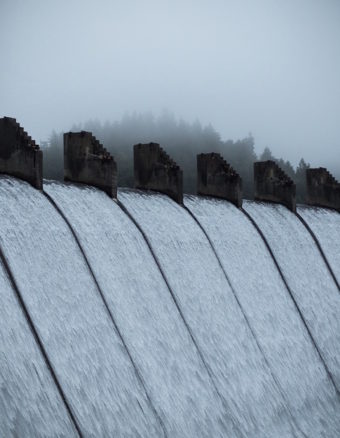
The first thing that hits you when you walk into OFB’s server room is the noise. It’s the hum of 500 computer fans working to cool the 500 Bitmain Antminer S9 mining units as they endlessly solve complex math problems. Housed on a large metal frame, they create a wall of identical palm-sized square metal faces, with thousands of cables harnessing them to one another. And there, somewhere between the rusted beam crane that once lifted one-tonne stacks of paper and the incessant blinking of a thousand orange and green LEDs, is the second thing that hits you: the contrast. Here in this historical town, where rusted signs display speed limits in miles per hour and vacant homes outnumber occupied ones, is a room of chrome-covered electrical boxes and motherboards that mine an intangible currency.
For Day, this contributes to the appeal. A self-proclaimed lover of ghost towns, he first heard about Ocean Falls in a documentary on the internationally successful swimmers who thrived because of the town’s indoor swimming pool. The idea of a historical community teetering on the edge of absolute abandonment being home to his next tech-based business was alluring. “I like the idea of doing something interesting,” he says over the droning computers. “I like the high-tech, but I like that juxtaposition too. I can live in the middle of nowhere, but my home office has to have four screens.”
To accommodate his big-city tastes, Day bought Case’s newly renovated heritage home in downtown Ocean Falls. A giant flat-screen TV dominates the living room; the smell of fresh paint lingers in the air; and if you ignore the disintegrating asbestos-filled homes that make up the neighbourhood, you can almost imagine you’re in an upscale coastal village. This illusion of grandeur is vital to Day’s well-being while he works in solitude, either checking on the computers in the buzzing server room or sitting in a cocoon of monitors at home. But even the house, with its new furniture and spacious high-ceilinged rooms, isn’t enough for him to consider living in this remote place full-time. “Some guys actually live here, but I couldn’t do that,” he says, drinking a Budweiser on an impeccably clean couch beneath the watchful eye of Sportscentre. “I’m here for three weeks, and then I need to leave. I need to go to Vancouver and see a movie and go to the pub.” The sole brew-serving establishment in Ocean Falls, Saggo’s Saloon, is only open three days a week from 4 p.m. to 7 p.m. and has stained wall-to-wall shag carpeting.
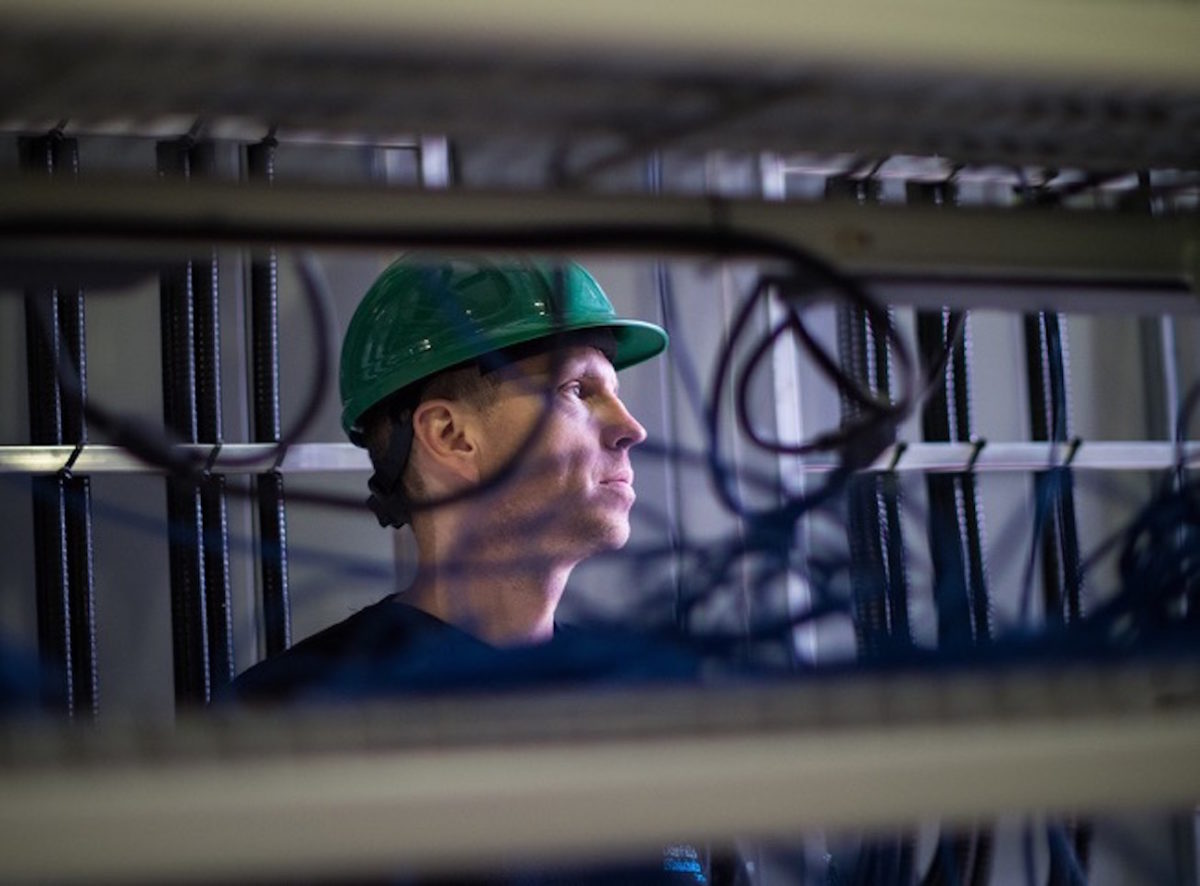
While the economic and social spinoff of bitcoin mining is almost non-existent, local residents are generally welcoming of Day and his obscure new business. “Just about everyone is retired, so this bitcoin is a bonus,” says Mike Crocker, a soft-spoken grey-haired man who has lived in Martin Valley for 27 years and is the dam’s do-it-all maintenance man. “I mean it can’t go down from here.” Day echoes this sentiment, that anything is better than nothing, even as he admits that a plant that can effectively run itself doesn’t offer much to the local economy. “I believe there is a psychological component. People are waiting for something, and they see things happening.”
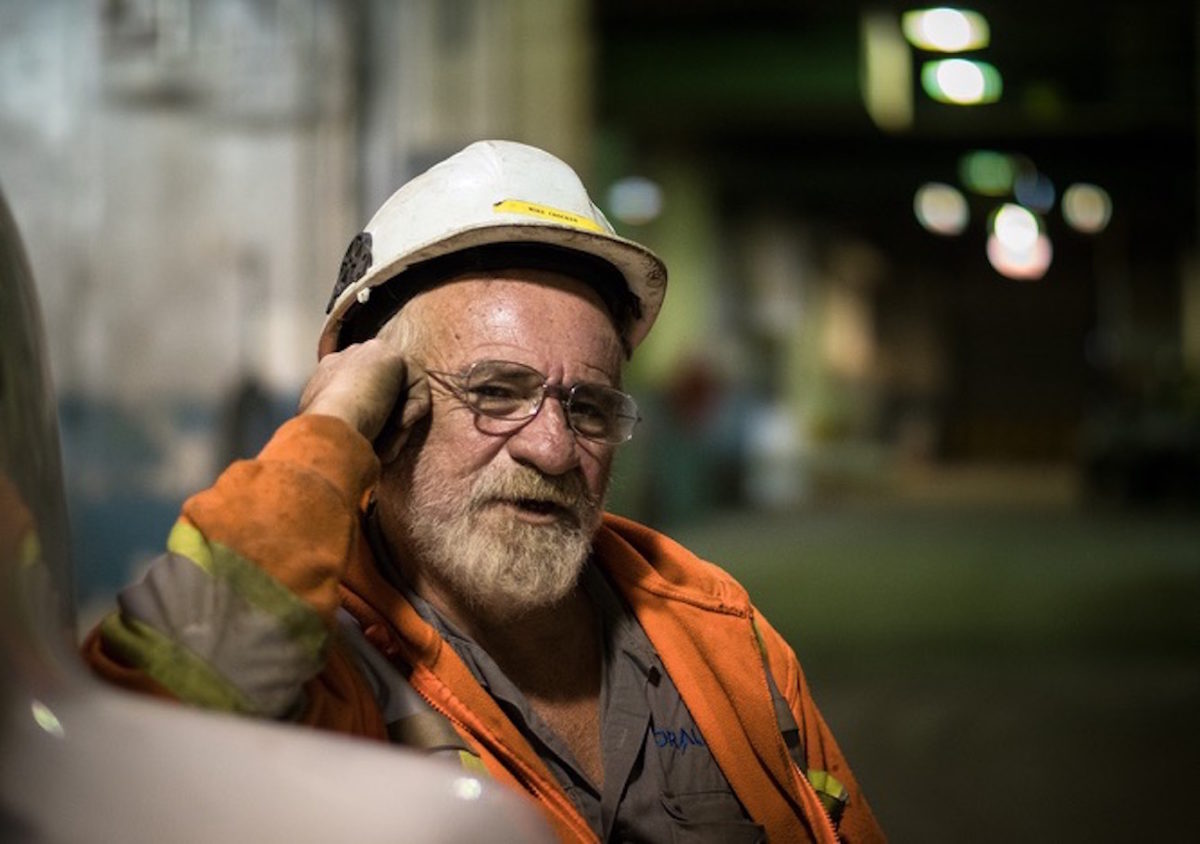
Outside the server room, things are changing; that psychological component Day speaks of is shifting, slowly. BC Ferries, which operates the boats that act as a lifeline to the community, just spent $7 million on a new ferry landing. The provincial government is promising to bring high-speed fibre-optic internet to the central coast and has plans to demolish the giant dock that barely stands, rotting and dangerous, on the shores of Ocean Falls.
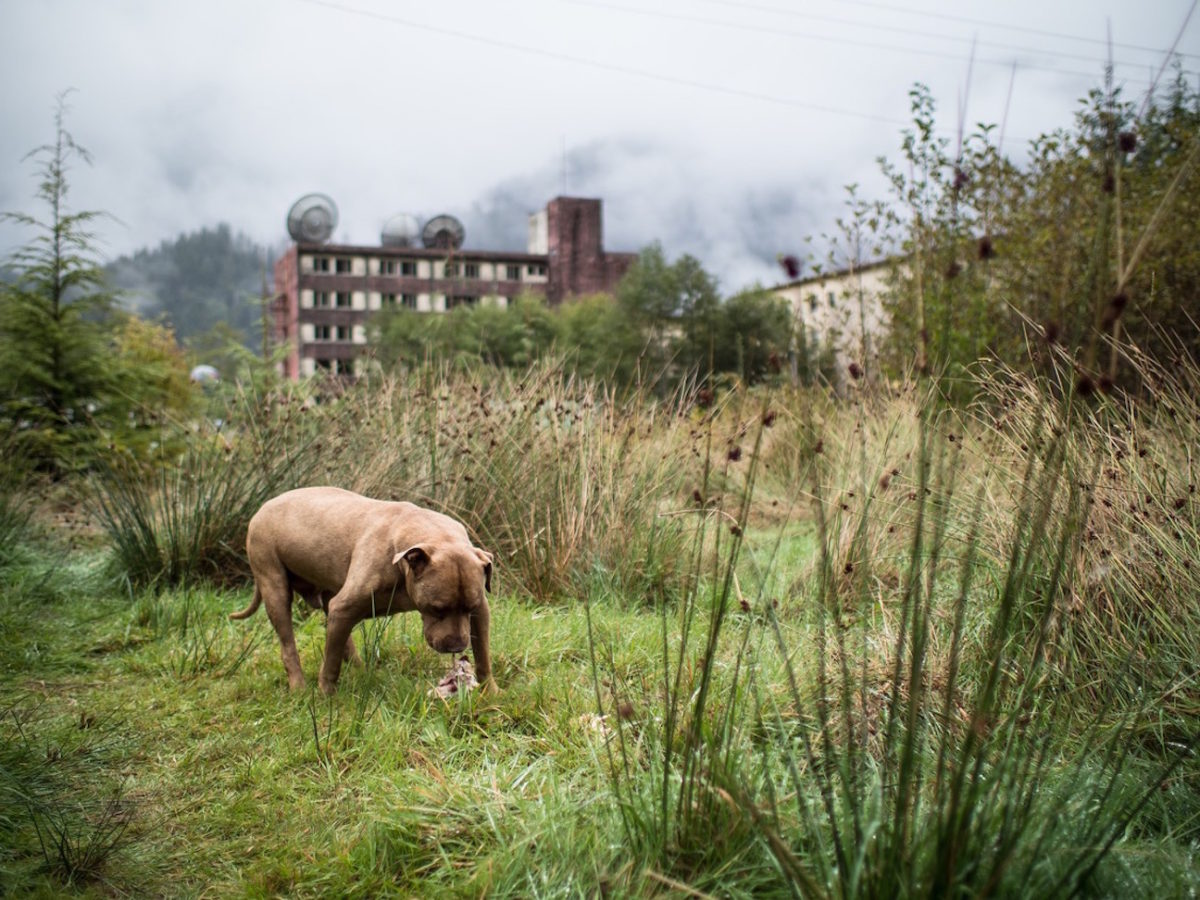
For the first time in years, two kids played on the town’s streets over the summer. Their father, an Albertan named James Kurtz, recently bought Ocean Falls Lodge on a whim. It is a long building that has had many incarnations over the years, including brothel and hospital. Kurtz’s son and daughter offer me an unsanctioned guided tour of the town’s derelict homes and the gutted five-storey Martin Inn that still dominates the downtown area. On the inn’s fourth floor, in one of its hundreds of ransacked rooms, the older of the two, a 12-year-old girl named Brannagh, looks out a broken window over the wet world below. In the distance, across the dam’s outflow, is the blue two-storey building where Day’s computers run day and night. After a summer spent walking dogs down forgotten streets and exploring the rotting relics of a time gone by, Brannagh is ready to return home to a place less remote, less isolated, less claustrophobic. “Ocean Falls would be a good place to start a jail,” she says, unknowingly echoing the words Cross wrote over half a century ago. “There’s nowhere to go.”
Related Stories
Life Cycles Almost Done
KMC Editor Mitchell Scott has been working as a story consultant and script writer for the Stance Film Crew for the…
A Life Ascending – Trailer
A new movie about the legendary Selkirk Experience guide, Ruedi Beglinger. Click the photo to check out the trailer. Or…
Life Cycles Is Almost Here
It's a decidely home-grown effort that will change the mountain bike film genre - and perhaps actions sports in general…
Life Cycles – Getting There
Sure, I might be biased, seeing as I'm helping the guys at Stance Films with their narration script and story…
STAND movie hits BC in early May
From our Friends Anthony Bonello of b4apres Media, and Nicolas Teichrob, photographer comes the cinematic premier of…
Creaking Tree String Quartet touring BC
Two time Juno nominees, The Creaking Tree String Quartet are coming to British Columbia to promote there fourth Album.…


